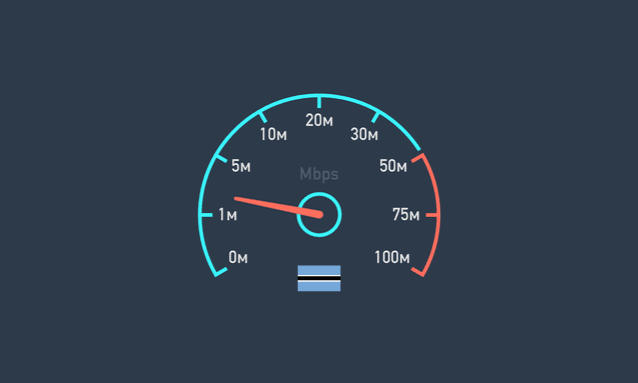
The arrival of the COVID-19 pandemic magnified a litany of deficiencies in the way many countries the world over operate. We have all had to review the way we do business and life, in general, to take into account COVID safety protocols. One way of doing this has been the concept of working remotely, which some countries such as the US are no strangers to.
Many people in Botswana would be surprised to know that there are companies out there that operate 100% remotely. This is a whole new concept for Botswana, which no doubt will not bode well for some companies, a great many of whom are still clinging for dear life onto dark age business practices that have no place in the 21st Century.
Last November, the International Monetary Fund (IMF) ran an article maintaining Botswana doesn’t have the right digital infrastructure to facilitate the sort of socially-distanced (and safer) workplaces that the Presidential COVID-19 Taskforce recommend. A staff report prepared by an IMF team which “reflects discussions with the Botswana authorities in November 2019 and is based on the information available as of February 21, 2020” said Botswana needs “higher-quality digital infrastructure” to facilitate the information transmission. The report says that while the country has so far achieved a broad internet coverage with affordable prices, with 80% of the population covered by at least a 3G mobile network, not everything else is in place.
“The internet speed in Botswana has stagnated for almost a decade, which becomes a bottleneck for a widespread digital adoption, particularly in the business sector that demands high digital capacity,” the IMF report stated.
In some cases, working from home and digitally keeping in touch with the office means having to transmit large volumes of information through higher quality digital infrastructure, which IMF says Botswana doesn’t have. However, even without the IMF making such an assertion, it is evident that the existent digital technology just doesn’t suffice. Last year, the nation was gripped by the election petitions case, with some watching the live-streamed proceedings via Facebook. Between the countless transmission breaks and poor audio quality, viewers were forced to jump from page to page in search of more stable and reliable transmission.
Digital technology aside, the idea of “working from home” is itself a joke within Botswana’s context. Time and time again, Botswana’s workforce languishes at the bottom of global labour productivity studies. Extremely shoddy work ethic and the severe lack of discipline and self-motivation are usually cited as major contributors. On that basis, it only makes sense that people who can’t deliver while on the clock and under supervision, would fail dismally at working from home and being self-motivated.
Remote working – an alien culture that’s proving hard to adapt to

While the virus rages on and shows no sign of abating, some companies in Botswana still expect it to be business as usual. Being self-employed, we work with various clients and to say Botswana is ill-equipped to operate remotely is one thing, but the real question here is; do people actually want do embrace it? Based on some of the people I’ve recently worked with during these strange times, it’s gratifying to see that some companies are. Sadly, there are others who appear to be struggling to adapt.
From time to time, I find myself having to insist on email, Zoom/Skype meetings and phone calls as people continue to request face-to-face meetings. To add salt to injury, these are usually meetings that can easily be avoided. Being asked to drop off instead of scanning in and emailing a document, or being summoned to a meeting because you sought clarification about the job you’re doing for a client doesn’t warrant a meeting. Even in the middle of a pandemic, people don’t seem to have lost their love of meetings.
I want to insist against it, but then you feel like you’re being held to ransom. Work is very thin on the ground at the best of times, let alone during the pandemic, and you are loathe to upset the applecart, in case you lose the work. Until now, the idea of working from home, flexi hours and zoom meetings have been alien concepts in Botswana, and it would appear some people are so stuck in their ways they have seemingly forgotten COVID is very much alive!
Are we too “stuck in the mud” to embrace change?
A meeting is not a meeting unless I can see you Face-to-face – It wasn’t until COVID hit that many people were introduced to Zoom/Skype meetings. When I was living in the UK and looking to return home, my husband and I started scouting out jobs to apply for and contacting prospective employers and potential business partners. When I mentioned this to a friend, she told me I was wasting my time because people would want me to be in the country and being in the UK would actually work against me. Before I moved from the UK seven years ago, Skype interviews had been a thing for a good while. So I took for granted that it would be an option.

Since we moved to Botswana, I’ve even known people to fly in from abroad just to attend a 30-minute meeting because virtual ones are just not the done thing here. Hopefully, COVID has taught us all valuable lessons, and Skype/ Zoom meetings are here to stay.
A reluctant workforce – Batswana are creatures of comfort, with many relishing the commute over the comfort afforded by working from home. Or maybe not even the commute itself, but rather dressing up and being seen going into work. Since I quit my last job almost two years ago, I’ve been working 100% remotely doing various jobs such as proofreading/editing/ translating and teaching because it’s near impossible to get a regular 9-5 job locally.
The high level of unemployment means that for each job advertised, thousands of applicants jostle for position desperate to land the job. So, trying to get an interview for a well-paid job with good prospects in Botswana is like drawing blood from a stone. That being the case, you’d think people would be interested in trying alternate avenues such as remote work to earn some form of income. Of the many people I’ve told about remote online work, only one has ever bit. The rest prefer to carry on waiting for the elusive job that may never come.
Awful work ethic and attitudes – are commonplace. Service delivery, even in full view of colleagues and customers, can be very lethargic and uninspired. Staff can be so sullen, you sometimes have to coax them out of their slump and butter them up before they reluctantly thaw out and decide they’ll help you. Now imagine that type of person being self-motivated and working from home without any supervision.
Factors that hinder the idea of working remotely
Exorbitant, highly unstable internet packages – We’ve changed ISPs 5 times in the last seven years, ending back with the BTC – arguably Botswana’s biggest ISP. BTC is the first ISP we tried when I returned home after living abroad for years. While we were very unhappy with the lack of support at BTC, it was reasonably priced. So we bounced around sampling other ISPs before making our way back to BTC cap in hand. Admittedly, we returned to BTC to find things had markedly improved – miles better tech support, the most favourable and affordable packages – four ISPs later, we are now a lot happier.

But we do pay through the nose for our fibre 20 Mbps internet package (approximately $100 per month), which isn’t brilliant but does do the job. We previously paid the same for a much more measly 5 Mbps!
The fact of the matter is, not many people can afford to pay these prices because their salaries simply don’t stretch that far. Botswana has some of the worst wages of any country in the region relative to the cost of living. Unemployment also reportedly stands at just under 20%. So, people are just plodding along trying to keep their heads above water let alone worrying about shelling out ridiculous internet fees. Instead, most people rely heavily on data – something I wasn’t aware of until I moved back home. A lot of people use data bundles to surf the internet and access Facebook on their mobile phones, hardly adequate for working from home.
Data bundles are essentially packages – either internet access (surf the internet within a certain limit of bytes and/or time) or airtime & SMS (call your loved ones and send them messages) or more commonly, a combination of both.
Relentless power cuts – Between the constant power cuts and extortionate but often unstable internet, working from home could remain a pipe dream. When I quit my regular paying job two years ago, I joined the remote freelancing space. It can be very rewarding but not quite as forgiving as a regular job. A client halfway across the world requests work and expects it delivered by the set timeframe. No ifs, no buts. They don’t care about loadshedding and your bad internet connection, and neither should they as paying clients.

Because my husband and I also run a small graphic design outfit and can be working over the weekend and well into the night, when the power cuts took a particularly nasty turn last year, we decided to bite the bullet and buy a backup system to guard against missing deadlines and damage to our reputation along with that. BUT not everyone will be able to afford a backup system because they are not exactly cheap. As it stands, we are even considering getting a backup for our internet, possibly one of those mobile personal Wi-Fi hotspots for days we’ve dubbed ‘the golden trio’ – when we wake up to no water, no power, no internet. Actually, we now have a reserve water tank, so we may have to rename it the ‘golden duo’.
No chance of a home office – to have a home office, first you need the space. Yes, I know, I’m stating the obvious. However, I bring up this point because a lot of people in Botswana do not have the extra space to set up office space in a quiet area of their house complete with a desk and comfortable chair. Salaries are generally devastatingly low and the rent sky high. There’s no real minimum wage. A lot of people are working the pseudo-internships, which pay an average of P2,500 per month. On average, those who do have a job can expect to earn about P7,000 -P10,000 per month. Rent tends to be about P4,500+ for a 1-2 bed apartment or house.
So, the idea of the masses working from home in Botswana is truly laughable. A classic case of pie in the sky, quite frankly.



